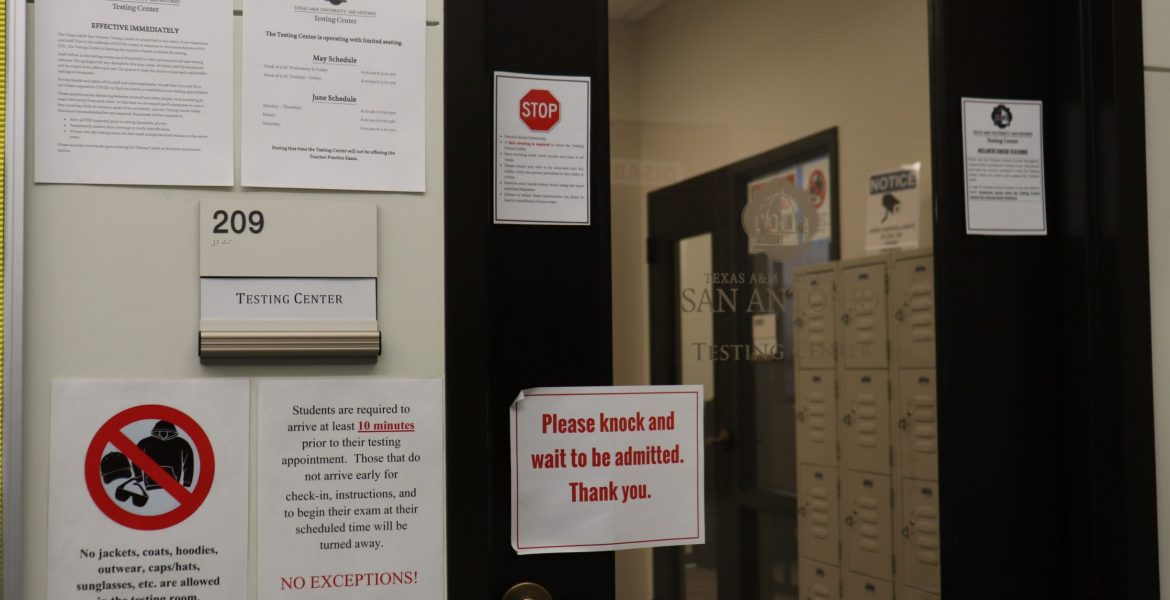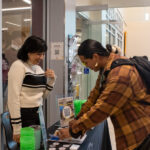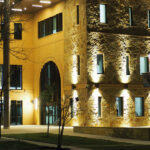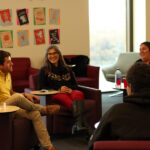The Testing Center at Texas A&M University-San Antonio has faced its toughest test to date; it’s operating during a global pandemic.
“We had to shut down when the campus shut down and we didn’t reopen until the end of May,” Julie Williams, Director of Student Success & Testing, said. “A lot of exams had to be canceled.”
Testing Center coordinator William Clint Kingsbery agreed.
“It’s obviously had a pretty significant impact on the Testing Center,” Kingsbery said. “The majority of our examinations were in person.”
A&M-San Antonio shut down in-person operations in March, following spring break, when lockdowns began occurring all over the country because of the COVID-19 pandemic. The Testing Center furloughed its two part-time employees around this time, along with its only student worker.
“I was doing what I could to justify my existence,” Kingsbery said. “I was sending emails and answering phones. I didn’t have any part-time workers. It really sucked.”
Part-time employees returned at the start of the summer to train for remote proctoring of the Texas Success Initiative (TSI) test, something the Testing Center staff had never done before. Remote proctoring is when testing administrators monitor examinations through a webcam to ensure academic honesty. The TSI assessment measures a student’s college readiness; 75 of these tests were done remotely over the summer.
“Normally, remote proctoring is handled through a company called Examity,” Williams said. “With India shutting down, which is where their call centers are at, TSI testing remote proctoring stopped. Luckily, our staff was able to come in and pick up and do remote testing because there are a lot of students that need it before being admitted. We were able to keep our hours, so we haven’t lost any staff permanently.”
Upon returning for the fall semester, Kingsbery created safety and cleaning policies and procedures for the returning staff and examinees. Among those changes, the Testing Center began operating at reduced capacity.
“The biggest impact on us has been that we are adhering to social distancing and we are operating at 50% capacity,” Williams said. “Where we in the past have been able to have 25 exams at one time, we are now down to offering 13 exams at a time.”
Up to 10 examinees can test in the big testing room and three in the small testing room. Desks are placed in checkered fashion to seat examinees six feet apart.
According to the Testing Center’s COVID-19 testing policy posted online, face coverings are mandatory. Examinees not wearing one will be turned away and they aren’t provided by the Testing Center.
“There’s wiggle room,” Williams said. “We’ll allow them to go back to the car and get a mask. Depending on what we have coming up after, however, we might not give them the full two hours. If somebody is scheduled immediately after, we want to be courteous and make sure that we are honoring everybody’s time.”
Kingsbery called it a “safety thing.”
“My staff feels safer with everyone wearing their masks because we have to go in the testing rooms and clean every station,” Kingsbery said. “We don’t want them to go in there and just breathe everything in.”
While gloves are optional, examinees must wear them throughout the entirety of their exam if they choose to wear them.
Changes were also made to the Testing Center’s refund and rescheduling procedures. Prior to COVID-19, examinees had to cancel 24 hours before their scheduled exam for a refund or a reschedule. Now, examinees can cancel one hour before.
“We are being more flexible because we understand that someone might wake up an hour before their exam and have a fever or other symptoms,” Williams said. “We would much rather cancel their exam than risk them coming in. We’ll work with them to get them rescheduled or a full refund.
Other safety procedures implemented include requiring students to visit the wellness stations on campus before entering the Testing Center, providing hand sanitizers, installing plexiglass at the check-in desk and staggering exam appointments.
“I feel like we’re in a place right now where we offer the best in-person testing with the maximum amount of safety,” Kingsbery said. “Ultimately, the priority is to ensure the safety of the examinees and our staff.”







